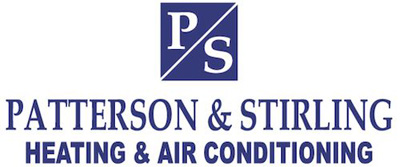Buying your first home is an exhilarating experience. You’re probably trying to keep track of a dozen things or more to ensure you’re making the right choice. We believe that gaining insight into your potential new HVAC system is crucial. The property’s HVAC system represents a significant investment and potential source of long-term costs, which is why due diligence is important for first-time homebuyers.
In the following guide, we’ll share seven tips for learning everything you can about a home’s heating and cooling system. And if you want a deeper opinion from the experts, consider calling Patterson & Stirling. Our staff can share details about your options with industry insights you won’t find elsewhere.
1. What Type of HVAC System Is It?
Start by identifying what kind of HVAC system the home includes. Furnaces tend to last longer than air conditioners, and newer types of HVAC systems like heat pumps feature average life spans longer than ever. Getting the details on the make and specific model provides a clear understanding of how much routine maintenance it might need.
2. How Old Is the Current HVAC System?
It’s just as smart to learn how old the HVAC system is when you’re looking at a potential new home. On average, HVAC systems tend to run for about 10-12 years. Knowing when it was installed helps you anticipate future maintenance needs or considerations if it might break down. Older systems are at a higher risk of problems, so fiscal planning for a replacement unit could be necessary sooner than you thought.
3. What Does the Warranty Cover?
Don’t forget to look into whether the HVAC system is still under warranty. If it is, this can assist with maintenance costs. HVAC warranties typically include parts and labor, but it’s important to note that details will vary. Make sure you go over any terms that seem confusing to make sure you fully understand your coverage and any possible out-of-pocket costs.
4. When Was the Last Time It Received Maintenance?
Don’t forget to check the maintenance history of the HVAC system, if such information is available. This service history can demonstrate if there have been regular problems or how often a tune-up was scheduled. You should at least try to track down a history of key tasks such as changing the air filter, which means it enjoyed more regularly scheduled tune-ups.
5. Are You Aware of the System’s Energy Efficiency Ratings?
Finding a home that features an HVAC system with great energy efficiency means smaller utility bills and a smaller environmental impact. Try and find the seasonal energy efficiency ratio (SEER) ratings for air conditioning along with the annual fuel utilization efficiency (AFUE) for furnaces. High SEER ratings mean more efficient cooling throughout the season, while higher AFUE ratings indicate that the fuel is efficiently converted into useable heat.
6. Have You Noticed Signs of Problems After Your Own Inspection?
Even without heating and cooling expertise, you can still take a moment to inspect the HVAC system on your own. Keep an eye out for potential issues that might have been overlooked. This might consist of odd sounds, spots with uneven heating or cooling and attempts at concealing any serious damage.
7. Is an Experienced HVAC Technician Available to Help?
If you’re still hesitant to make an offer because of the condition of the HVAC system, it’s beneficial to get a professional opinion from experienced HVAC professionals. They are skilled at identifying things you may not know about, including leaking coolant, damage to the wiring or inefficient ductwork.
A Call with Patterson & Stirling Simplifies Your Home-Buying Journey
Selecting your first home should be thrilling, and Patterson & Stirling wants to ensure that doesn’t change. Get in touch with us at 814-739-6977. We can discuss how our HVAC services ease your mind, giving you what you need to make an offer with confidence.



